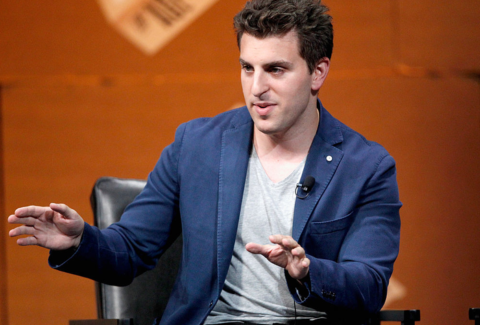Walter Isaacson on the role of storytellers
Welcome to the forty-sixth edition of ‘3-2-1 by Story Rules‘.
A newsletter recommending good examples of storytelling across:
- 3 tweets
- 2 articles, and
- 1 long-form content piece
Let’s dive in.
🐦 3 Tweets of the week

Such a cool visual to show the differences in daylight hours. I wonder how southern California gets more sunlight than Florida and Texas…

I couldn’t agree more with Mr Harari when he implores scientists to improve their storytelling skills.

Topographic maps are so cool! I’d love to 3D print one… and stare at it for hours.
📄 2 Articles of the week
a. Post against communism by Devon Eriksen
Sometime back a kerfluffle erupted on Twitter when Emmett Shear (ex-CEO of Twitch and briefly the CEO of OpenAI) made a radical suggestion:

This led to several reactions, but most memorably from a sci-fi author named Devon Eriksen. You can read the entire thread here.
What fascinated me was one of the long tweets by Devon – almost like an article – which makes a impassioned case against advocating the forced redistribution of all wealth (a.k.a. communism):

Brutal.
b. How the Internet Destroys Your Focus (and How to Get It Back) by Thomas Frank
(Hat/tip: Swanand Kelkar, through #ROTD)
Some interesting insights on how our tools can influence our brains:
In the late 1800’s, the philosopher Friedrich Nietzsche’s eyesight began to fail him. And this had a terrible consequence – it made it almost impossible for him to write. The act of focusing his eyes on a page while writing gave him horrible headaches, and he started to worry that he’d have to give it up entirely.
But something saved him, and that something was called the Malling-Hansen Writing Ball. As weird as this thing looks, it was actually the fastest typewriter ever built when it was released, and it saved Nietzsche’s writing career. Once he learned to touch type, he could write with his eyes closed.
The Writing Ball didn’t just rescue Nietzsche’s ability to write, though — it also changed the character of his output. One of his close friends noted that Nietzsche’s writing took on a new forcefulness; it felt tighter.
I also liked the idea of top-down control vs. responding to bottom-up stimuli:
Once the general population became literate, they started to read — silently — for long stretches of time. And this was a bigger deal than you might think.
Carr writes, “To read a book was to practice an unnatural process of thought, one that demanded sustained, unbroken attention to a single, static object.”
And for people to do this, they had to forge neural pathways that would allow them to apply “top-down control” over their attention.
Top-down control is something that has to be learned and practiced. By default, we’re built for “bottom-up” attention — our senses are finely tuned to pick up changes in our environment, and our attention naturally drifts to those changes.
This is great for keeping an eye out for lurking tigers or potential sources of food, but it’s not so great for deep, analytical reading. It doesn’t allow for the type of intense, prolonged concentration that’s necessary for parsing complex ideas.
Through reading, we developed a new type of attentional control — one that was much better suited to that task.
And it seems that now we’re starting to lose that ability..
The article ends with 10 specific tips to reclaim our attention spans from the internet.
🎧 1 long-form listen of the week
Celebrated biographer Walter Isaacson got unprecendented access to Elon Musk for writing his biography. What’s remarkable was how Musk agreed to Isaacson’s conditions:
Isaacson: I said I just want to do this not based on five or 10 interviews but based on staying by your (Musk’s) side for two years watching you morning noon and night whenever I want. He (Musk) went ‘okay’. And then I said but by the way I’m not going to show you the book in advance you get no control over it. He went ‘okay’.
I thought, ‘all right this is going to be a fun ride’.
Musk is a remarkable person – especially given the severe trauma he went through during childhood. He does drive himself and his team crazy, but his vision, drive and skills have given some incredible gifts to humanity.
I loved Isaacson’s response to the last question (emphasis mine):
Bartlett: With all you know about the nature of what it is to live a happy successful life, what do you think is the single most important characteristic to be happy and/or to be successful?
Isaacson: Knowing your mission and knowing yourself. Maybe that’s two things but it took me a while to know myself, meaning what I was good at as a leader and what I didn’t want to be good at. But also I know the mission that I’m trying to do in life and it’s not getting humanity to Mars… (it) is not the grandest of all missions but I think if you know yourself and what you value then the happiness follows.
Bartlett: What is your mission?
Isaacson: My mission is that there’s certain things that inspire us that make us aim higher and make us better and as a a journalist as a writer and now as a biographer and historian I like to tell the stories about people who moved us, who rippled the surface of history and from those lessons we all in a smaller way can be on a journey that’s not just about ourselves. When I speak to my college students there’s always graduation speakers that say ‘follow your passion’ and I say no it’s not about your stupid little passion it’s about connecting your passion to something higher than yourself. So figure out what that mission is for you and I do it through storytelling. Now storytelling isn’t as elevated as rocket building or automaking but the oldest, most venerable, valuable way we have of passing on values is telling stories – whether it’s around the first campfire ever built or whether it’s Homer doing it in the Odyssey or the Bible with a great opening sentence “in the beginning,”telling us these stories I think there’s a role in society for storytellers that try to make us better…
That’s all from this week’s edition.
Photo by Melanie Deziel on Unsplash







